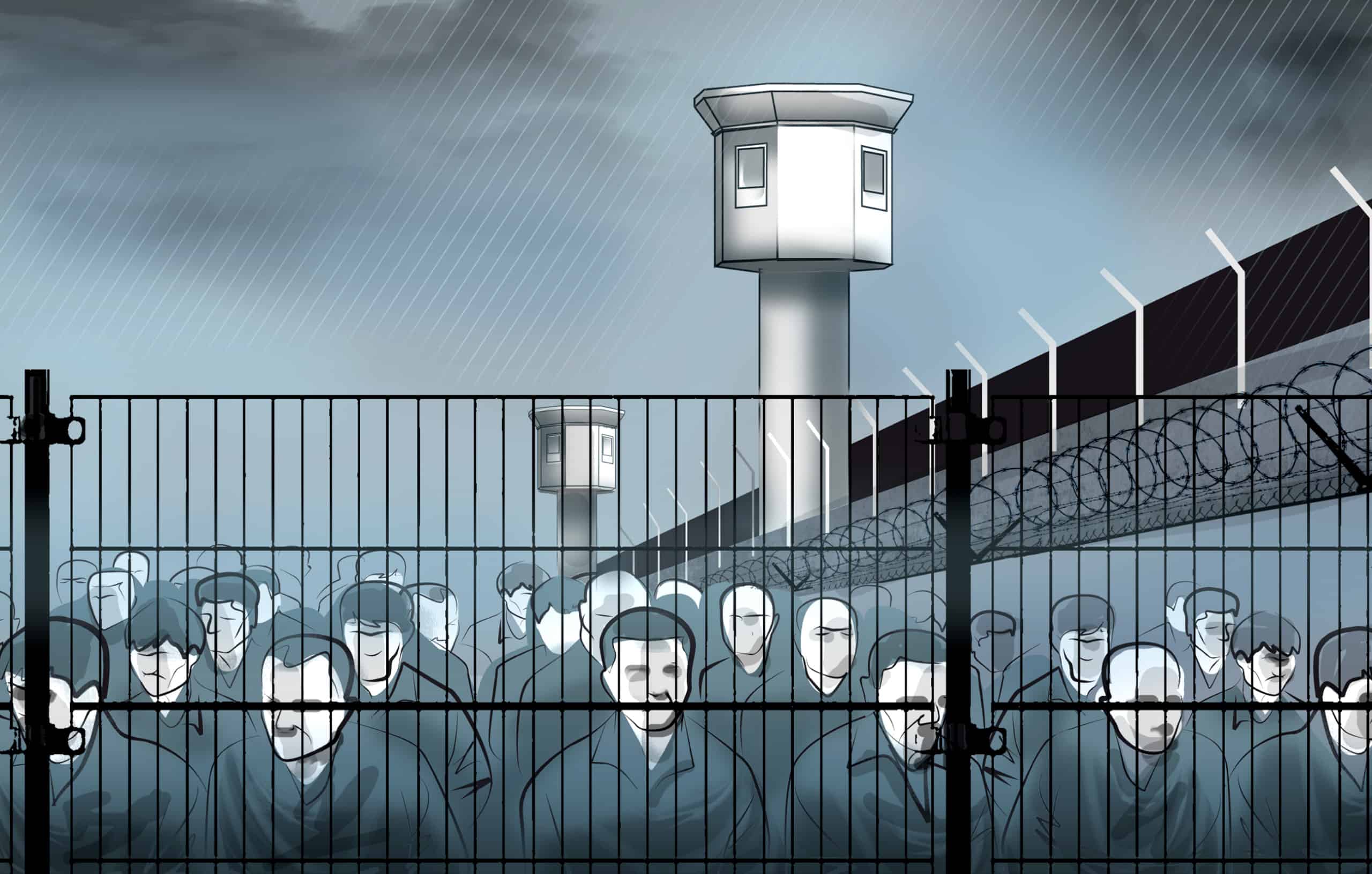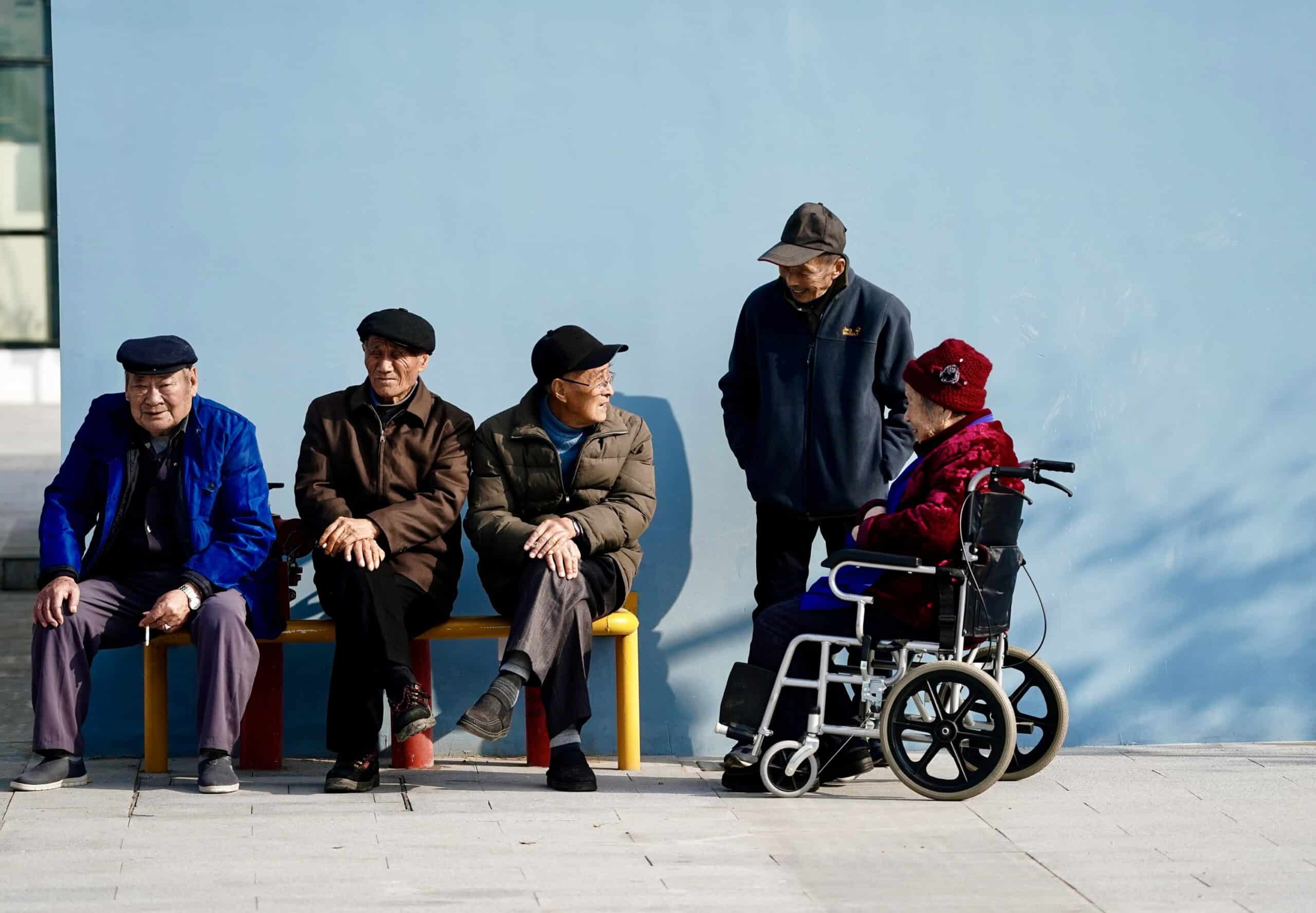
Listen to SupChina editor-at-large and Sinica podcast host Kaiser Kuo read this article.
About halfway through the four-hour confirmation hearing for Antony Blinken, President-elect Joe Biden’s nominee for Secretary of State, Senator Lindsey Graham let out a sigh of relief. Earlier that day — the last full day of Donald Trump’s presidency — Secretary of State Mike Pompeo had called China’s actions against ethnic minorities in the Xinjiang region a genocide. It was a significant announcement — this is only the sixth time in history the U.S. has determined a genocide is taking place — and Senator Graham, an ally of the Trump administration, was testing Blinken on whether or not he agreed with the designation.
“That would be my judgment as well,” Blinken said. “You do agree?” Graham asked again. “Yes,” said Blinken, unflinchingly.
“We’re off to a good start here,” Graham then said, laughing. Later on in the hearings, Blinken explained his reasoning for the genocide designation.
“The forcing of men, women and children into concentration camps,” he said, “trying to, in effect, re-educate them to be adherents to the ideology of the Chinese Communist Party, all of that speaks to an effort to commit genocide.”
A month and a half into the Biden administration, with the full weight of the U.S. government now behind him, Blinken hasn’t backed down. In a call with his Chinese counterpart, Blinken said the U.S. would stand up for human rights in Xinjiang, and a State Department spokesperson has since told The Wire that Beijing’s actions in Xinjiang “shock the conscience and must be met with serious consequences.”

Credit: Freddie Everett, U.S. Department of State
“The PRC government has established an unprecedented, intrusive, high-technology surveillance system across Xinjiang, as part of a region-wide apparatus of oppression aimed primarily against members of Muslim and ethnic minority groups,” the spokesperson said.
While it remains to be seen what, exactly, the Biden administration will do, analysts say the fact that the U.S. government is now unequivocal about what is happening in Xinjiang represents a significant shift.
“One of the likely reasons the Pompeo team waited so long for the genocide designation is because it requires a lot of implementation,” says Ilan Berman, senior vice president of the American Foreign Policy Council. “It could be enormously disruptive, and it has theoretically far reaching effects.”
This is especially true for the U.S. business community, which relies heavily on supply chains that run through China, including Xinjiang itself. Many companies, analysts say, are now waiting with bated breath to see what the U.S. government does next. In the meantime, however, their collective silence on what is happening in Xinjiang represents a stark contrast with the U.S. government’s increasingly clear voice.
The Wire surveyed the 48 largest U.S. businesses1The 50 largest companies according to Fortune 500, with operations in China, significant sourcing from China, or joint ventures in China. Two, however, no longer have operations in China. with operations in China and asked if they had a position on the well-documented evidence of the Chinese government’s systematic repression in Xinjiang and if they have done anything in response. The vast majority — 88 percent — did not reply or would not respond to questions that referenced Xinjiang. Indeed, a Costco spokeswoman seems to have perfectly summarized the attitude of the U.S. businesses community in response to The Wire’s questions about the largest persecution of an ethnic group in the 21st century: “Management has no comment at this time.” She asked not to be named.
Only six companies — Apple, Caterpillar, IBM, Intel, Dell and Pfizer — responded to questions about Xinjiang, all saying they do not source products from the region. But only one expressed dismay about the Chinese government’s actions there.
“Dell Technologies does not source from the Xinjiang Province. We continue to be concerned about allegations that ethnic Uyghurs are subject to forced labor in factories outside of Xinjiang Province, including those supplying the tech industry,” an unnamed spokesperson told The Wire over email. (Dell was in the hot seat last year when the Associated Press found that one of its suppliers had a subsidiary that used Uyghur forced labor. That subsidiary is now sanctioned by the U.S. government.)2The Dell spokesperson told The Wire: “While an O-Film subsidiary is a supplier of ours, we do not conduct business with the entity named in the July 2020 BIS entity list.”
[Beijing’s actions in Xinjiang] shock the conscience and must be met with serious consequences.
U.S. State Department spokesperson
For many Uyghurs and human rights activists, this refusal from American companies to take a stance is painful to watch.
“I can’t even come up with the right words to express how angry I am. This should be a non-controversial issue,” says Nury Turkel, a Uyghur who was born in a Chinese re-education camp and is now a commissioner to the U.S. Commission on International Religious Freedom, a body created by Congress. “The global business community, including American companies, must come to grips with the fact that they are doing business in a country in the midst of a genocidal campaign.”
But America’s corporate leaders, observers say, are afraid of retribution from the Chinese government, which could disrupt companies’ production or cause them to lose access to the world’s second largest consumer market. After all, a single tweet supporting Hong Kong protesters from a general manager’s personal Twitter account was reason enough for Beijing to suspend NBA broadcasting inside China, a decision that cost the league hundreds of millions of dollars.
“China was betting that they’d be able to get away with these crimes knowing the leverage they have over a range of countries and companies around the world. It’s too big to fail, or too big to be berated,” says Jonathan Schanzer, a senior vice president of the Foundation for Defense of Democracies. “Given the business stakes involved, it really requires bravery and principle [to take a stand], and we have not seen salient examples of this.”
For those who care about the millions of Uyghurs forced into prison camps in Xinjiang or sent to work in factories across China, patience is wearing thin. And as the U.S. government grows more forceful in its assessment, analysts warn the business community’s “no comment” may no longer cut it.

COMFORTABLE WITH COMPLICITY?
Of course, U.S. companies are no strangers to operating in countries that are guilty of atrocities. But over the years, different moral crises have elicited widely different responses from the business community.
In the 1980s, for example, many major businesses and universities cut ties with South Africa over its apartheid system after students and other activists applied pressure. The U.S. business community previously faced calls to boycott China, too, after the 1989 massacre in Tiananmen Square, in which the Chinese government killed thousands of pro-democracy protesters.
But the cost-benefit analysis of doing business in 1980s South Africa or China was relatively straightforward. In 1989, after all, China’s economy was barely 6 percent of America’s; today that figure is 70 percent. In other words, back then, it didn’t impact U.S. businesses’ bottom line to cut ties. By contrast, even after Americans began to suspect that parts of the Saudi government were involved in the 9/11 attacks and were supporting Al Qaeda, U.S. companies like Dow Chemical and Exxon Mobil continued their lucrative relationships with the kingdom’s state-controlled energy industry. The decision to take a stand on human rights abuses in China today is similarly financially fraught now that China is the world’s factory floor and the second biggest economy. Moreover, China is known for inflicting retribution on companies who criticize the government.
“I don’t think the world has ever faced a situation where you have a country that is deeply embedded in global business where you also have this sort of mass action going on,” says James McGregor, a consultant and former chairman of the American Chamber of Commerce in China. “Companies fear that if they speak out, they could put their Chinese employees in danger and their business in China will be done.”

Credit: Coach
In addition to the NBA, the Chinese government has already made examples out of companies like Delta and Marriott for including Taiwan and Tibet as countries on website drop-down menus. Beijing demanded apologies, which were quickly acceded to. Coach even pulled a t-shirt from global stores because it listed Hong Kong and Taiwan as countries. The company soon tweeted: “Coach is dedicated to long-term development in China, and we respect the feelings of the Chinese people.”
The fear of losing access to the massive Chinese consumer market is often cited as reason enough to stay in Beijing’s good graces. But some observers say businesses have also grown too comfortable with their rationalizations for turning a blind eye to China’s human rights abuses.
“For the last 40 years, the business community has argued that engaging commercially and economically with Chinese companies and the Chinese government would bring greater political openness,” says Sophie Richardson, Human Rights Watch’s China director. “But what we see 40 years later is massive commercial activity alongside what is probably modern history’s greatest mass arbitrary detention along ethnic and religious identities.”
How did this happen? And why didn’t companies react? The simplest explanation is that, for the business world, engagement was working — up to a point. China’s economic rise had been improving conditions at home and its relations with the outside world. And in many of China’s factories, labor conditions — while still far from perfect — have seen incremental improvements; millions of Chinese workers have been lifted out of poverty as a result of those jobs.
But many Western companies no longer own or operate their own factories in China. Instead, they favor of an outsourcing model, meaning they contract out large parts of their manufacturing and supply chain to local firms. As a result, their visibility “on the ground” has decreased even as their supply chains have become more deeply enmeshed in a political economy that doesn’t have significant labor protections or a robust rule of law.
This, Thomas MacManus, the director of the International State Crime Initiative, says, creates a false sense of plausible deniability — one that companies should be forced to reckon with. Maintaining operations in China, he says, “may not mean these companies are complicit in the crime of genocide, but they’re certainly complicit in that they’re supporting a genocidal state.”
Companies fear that if they speak out, they could put their Chinese employees in danger and their business in China will be done.
James McGregor, a consultant and former chairman of the American Chamber of Commerce in China
So far, there has been little public pressure on that complicity, but businesses shouldn’t count on the status quo. A recent survey conducted by The Washington Post showed that 54 percent of American respondents knew that Uyghurs were being held in detention camps, and a recent Pew study said that 70 percent of Americans believe the U.S. should promote human rights even if it damages economic interests in the U.S.-China relationship.
Now that the U.S. government has labeled China’s actions a genocide, this mounting public awareness could grow to an avalanche one year from now, when China is scheduled to host the Winter Olympics in Beijing. Already there are calls from politicians and human rights groups for corporate sponsors — such as Coca-Cola, Visa, and Airbnb — and even countries to boycott the games. Participating, many say, amounts to endorsing a genocidal state.
“U.S. companies should not sponsor the Olympics, if they have a little bit of humanity left,” says Rushan Abbas, a Uyghur who moved to the U.S. in 1989 and founded Campaign for Uyghurs, a Washington, D.C.-based organization. In recent years, she has watched from across the Pacific as the Chinese government imprisoned her sister and her husband’s family.
History, she warns, is repeating itself: “In Nazi Germany, when businesses were making profits off of Jewish forced labor, they claimed ignorance — blaming the information flow being too slow. But companies can’t claim ignorance now. They know what is happening. More than 3 million people are in concentration camps; there is torture, there is forced sterilization, and now it has become clear that there is systematic rape. An active genocide is happening.”
Indeed, one of the Olympic sponsors and “exclusive providers” of translation services is iFlytek, the Chinese voice recognition company that has been blacklisted by the U.S. for its role helping Xinjiang police conduct mass surveillance of Uyghurs.
Decisions like that make plain how boldly Beijing wants to normalize its actions in Xinjiang.
HUSHED CONCERN
The White House has not yet said if the United States will be boycotting the Beijing games, but it signalled this past week that the option is on the table. A “final decision,” White House press secretary Jen Psaki said, has not yet been made.
The 2022 Olympics, then, in stark contrast to the 2008 Beijing Olympics, which were celebrated as China’s global coming out party, may end up representing some type of collective action tipping point on Xinjiang. But what, exactly, would that action look like, for companies and governments?

Credit: evitc, Creative Commons
The first step, many experts agree, is to cut ties with Xinjiang. It is impossible to do any type of business in the region without being somehow involved in the detention and forced labor system.
“The opacity of the situation and lack of transparency on this issue makes it fundamentally hard to be sure where forced labor would or would not be involved,” says Sheena Chestnut Greitens, an associate professor at the University of Texas at Austin, “So I’d prefer to see a moral presumption that these things are problematic to be on the safe side.”
One challenge global brands face is that independent audits, which they rely on to check factory labor conditions, cannot be completed in the region. Over the past year, many major auditing firms have decided they can no longer work in Xinjiang, due to lack of transparency, inability to freely interview workers, and poor mobility in the region.
“It doesn’t take rocket science to see that when there is a heightened police state, it’s impossible to conduct real audits,” says Andre Raghu, the chief executive of HAP, which ranks auditing firms.
According to Nate Herman, the senior vice president for policy at the American Apparel and Footwear Association (AAFA), every company should be “trying to map out their supply chains as quickly as possible to see if there is any nexus with Xinjiang — and then eliminate it as quickly as possible.”
This year, a few companies have done just that, including Marks & Spencer, a British retailer, and Eileen Fisher, an American apparel brand. Badger Sportswear, an American company, was one of the first companies to leave Xinjiang after it discovered, in 2019, that one of its suppliers was using Uyghur forced labor.
But for many companies, especially in the apparel industry, eliminating Xinjiang from supply chains isn’t easy. Xinjiang produces 20 percent of the world’s cotton, and even if apparel companies decide to stop sourcing from Xinjiang, experts say companies can’t be sure that the cotton from other Chinese provinces doesn’t contain strands of cotton from the region. Recent reports have also shown how wind turbine, solar panel, hair product, bitcoin mining and tomato supply chains are deeply integrated in Xinjiang as well.

Credit: Chandler West, Official White House Photo
Moreover, is it enough to simply leave Xinjiang? A recent Australian Strategic Policy Institute report documented how Uyghur forced labor is not limited to Xinjiang, and some workers are forcibly transferred to other provinces to work.
Even if a company could guarantee there wasn’t forced labor in its supply chain, what does it mean to work in a country with ongoing state-sponsored genocide?
“Imagine back in the 1940s saying: ‘we’ll still work with Nazi Germany, but we won’t buy products made in Auschwitz,’” says Foundation for Defense of Democracies’ Schanzer. “That would sound ridiculous today.”
Yet, even with those concerns, most say it is not feasible to leave China altogether. Human Rights Watch and groups like the Worker’s Rights Consortium, for example, are advocating smaller, targeted changes that focus on Xinjiang.
“Pulling out of China would be powerful, but I don’t know if it’s possible,” says Amelia Pang, the author of Made in China, which documents China’s prison labor system. “There are a lot of things that are only made in Chinese factories. Even leaving Xinjiang alone is pretty hard for a lot of companies.”
This conundrum, and the desire to kick the can down the road, has led many companies to look to the government for answers. “Forced labor, as regrettable as it is, is part of a much broader system of oppression,” says AAFA’s Herman. “We have advocated for the U.S. government to take a holistic approach.”
The U.S. government has started by sanctioning companies involved in human rights abuses in Xinjiang, enacting an import ban on all cotton and tomato products from Xinjiang, and putting in place a supply chain business advisory for the region. It has also encouraged other countries to take action on Xinjiang. Just in the past few weeks, Canada and the Netherlands have made the move of designating the Uyghur detentions as a genocide.
More U.S. legislation is also in the pipeline, including the Uyghur Forced Labor Prevention Act, which passed the House in September and would force companies to scrutinize Chinese supply chains and would ban broad categories of imports from Xinjiang.
Some in the American business community, however, have been resisting the bipartisan bill. The U.S. Chamber of Commerce and a consortium of retail trade groups, including the AFAA, have issued statements opposing it, arguing that a blanket standard does nothing to improve the situation. And Apple, Coca-Cola and Nike have all lobbied against it.
Many of the people involved in advising and advocating for U.S. businesses on this topic told The Wire that Xinjiang is the biggest topic of conversation behind closed doors.
“I am in meetings multiple times a week about this,” says Anna Ashton, the vice president of government affairs for the U.S.-China Business Council. “What we hear from companies is alarm and concern about what is happening and also about being associated with what is happening.”
They try to play victim, but the business community might have more leverage trying to get China to do the right thing than the diplomats.
Nury Turkel, a Uyghur who was born in a Chinese re-education camp and is now a commissioner to the U.S. Commission on International Religious Freedom
But this hushed concern — exemplified by the business community’s refusal to answer The Wire’s questions — combined with their resistance to legislation, only emboldens China, says Scott Nova, executive director of the Workers Rights Consortium.
“The Chinese government finds it encouraging that even the companies that choose to leave do so silently,” he says, “because it shows the Chinese that they still have massive leverage and allows them to believe there won’t be a snowball effect.”
Getting China to budge at all, experts say, depends on businesses finding their voice.
“Corporate America is so influential in China,” says Turkel, the religious freedom commissioner. “They try to play victim, but the business community might have more leverage trying to get China to do the right thing than the diplomats. Their responsibility is at the front and center of what we are trying to accomplish to stop the genocide.”
David Lampton, professor emeritus at Johns Hopkins School of Advanced International Studies and former president of the National Committee on U.S.-China Relations, agrees. “The most powerful incentive for China to behave better is the decisions that the firms make,” he says. “In the end, China is very commercially driven. And if businesses start to make decisions they don’t like, and they see the international economy reacting, that is the most effective stimulus for change.”
For companies, the most palatable way to do this, according to Mark Kramer, a senior lecturer at Harvard Business School, would be some kind of coalition. “There is safety in numbers. If businesses respond as an industry wide coalition, for example, it’s not just an individual company making a decision and paying the price,” he says. “Then the companies have cover.”
So far, given that just one company expressed concern to The Wire about Xinjiang, it seems the only thing the business community can agree on is that silence is golden.

Eli Binder is a New York-based staff writer for The Wire. He previously worked at The Wall Street Journal, in Hong Kong and Singapore, as an Overseas Press Club Foundation fellow. @ebinder21

Katrina Northrop is a journalist based in New York. Her work has been published in The New York Times, The Atlantic, The Providence Journal, and SupChina. @NorthropKatrina



